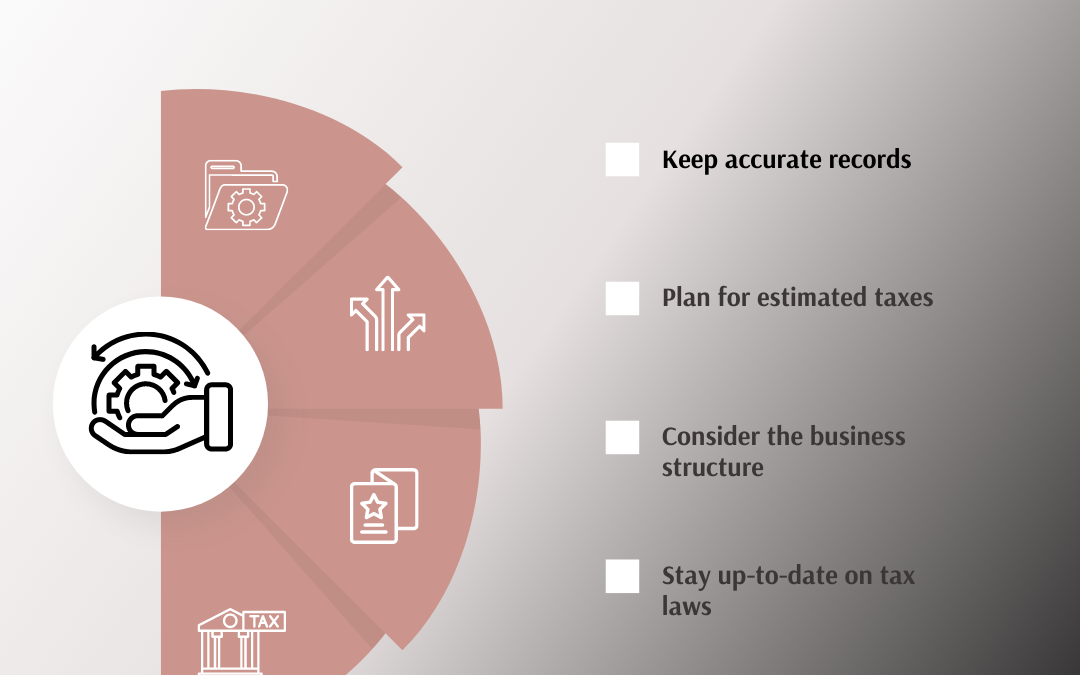As a small business owner, tax planning is one of the most critical components of running a successful and sustainable business. Whether you’re a solo entrepreneur or managing a small team, understanding the intricacies of tax laws and regulations is paramount to minimizing your tax liability, improving cash flow, and avoiding costly penalties and fines.
Here are four most essential tips for small business tax planning:
Keep Accurate Records
One of the most fundamental aspects of small business tax planning is keeping accurate records. From receipts and invoices to bank statements and financial records, it’s essential to track all income and expenses throughout the year. This will not only help you stay on top of your cash flow but will also simplify the process of filing your tax returns. Consider using accounting software to help you keep track of your finances, automate your record-keeping process, and streamline tax preparation.
Plan for Estimated Taxes
Small business owners are often required to pay estimated taxes throughout the year. Estimated taxes are quarterly payments that cover your tax liability for the year. By planning for these payments, you can avoid penalties and interest charges, and ensure that you have enough money to cover your tax bill. Consult with a tax professional to determine the correct amount of estimated taxes and ensure that you file on time.
Consider the Business Structure
The structure of your business can significantly impact on your tax liability. Sole proprietorships and partnerships are the most straightforward business structures, but they may not be the most tax-efficient. LLCs and corporations can provide tax benefits such as reduced self-employment taxes and limited liability protection. Consult with a tax professional and legal counsel to determine the best structure for your business based on your goals, revenue, and industry.
Stay Up to Date on Tax Laws
Tax laws and regulations change frequently, and it’s essential to stay up to date on the latest developments. Failure to comply with tax laws can result in costly penalties and interest charges, as well as damage your reputation and financial stability. Consider attending tax seminars or webinars, subscribing to tax publications, and working with a tax professional to ensure that you’re aware of any changes that may impact your business.
In conclusion, small business tax planning is not only an essential component of running a successful and sustainable business, but it’s also an opportunity to take control of your financial future. By taking a proactive approach to tax planning, you can minimize your tax liability, improve cash flow, and make strategic decisions that position your business for long-term success.
In today’s rapidly changing economic landscape, small business owners must stay ahead of the curve and adapt to new challenges and opportunities. Tax planning is one of the most effective ways to do so, as it allows you to stay up to date on the latest tax laws and regulations, take advantage of tax benefits, and make informed decisions about your business structure and financial strategy.
Remember that tax planning is not a one-time event, but an ongoing process that requires consistent effort, attention to detail, and collaboration with tax professionals and legal counsel. With the right approach and mindset, you can transform tax planning from a daunting task to a strategic opportunity to grow your business and achieve your goals.
So, take control of your financial future, embrace the power of tax planning, and pave the way to long-term success for your small business.




